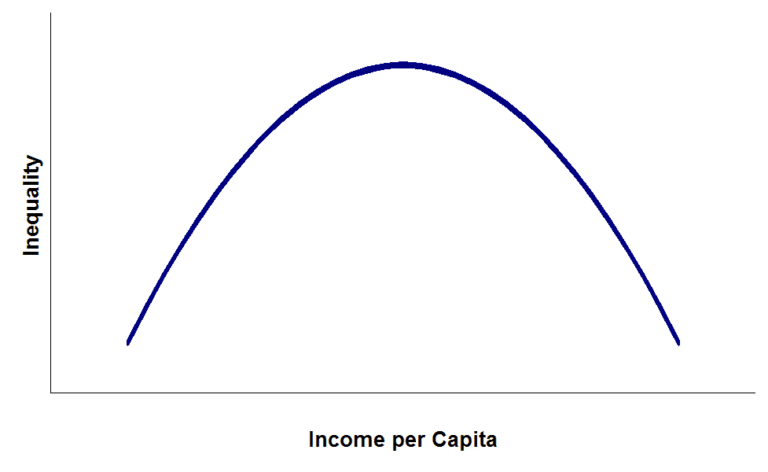Linda Thompson's Key Ideas from Enlightenment Now
by Steven Pinker
Ideas, facts & insights covering these topics:
13 ideas
·12.6K reads
53
4
Explore the World's Best Ideas
Join today and uncover 100+ curated journeys from 50+ topics. Unlock access to our mobile app with extensive features.
An Optimistic View Of The World
- Wealth has increased not just in the West, but around the globe, all while decreasing poverty and inequality.
- The United Nations bring humanism to a global scale, which has made our lives safer than ever.
- We still have problems, such as AI, terrorism, and the environment, but we must face them with reason.
- Despite what the news would tell you, the human story of the 21st century is one of progress, not misery.
79
1.77K reads
Enlightenment Has Increased Wealth While Reducing Poverty and Inequality
Just 200 years ago, over 90% of the world’s people lived in extreme poverty. Today, that share is less than 10%. That’s because from 1820 to 1900, global income tripled. 50 years later, it had tripled again, and a third time by 1984. Nowadays, even poorer, less developed countries, like Rwanda or El Salvador double their income every 18 years. Richer countries do so every 35 years.
78
1.41K reads
A Rise In Income Benefits All
A common argument against the benefits of global income growth is that “only the rich get richer". This is not true.
As income grows, inequality only initially rises, then peaks and goes back down.
As a state’s wealth rises, it spends more on social benefits programs. In Europe, for example, only 1.5% was used for a poverty safety net 100 years ago. Today the average of states’ budgets reserved for it is 22%.
80
1.18K reads
Life Is Safer Than Before
Today’s world is of course not perfect. There are civil wars in Iraq, Afghanistan, Sudan, and Syria still going on today. However, less than 100 years ago, war used to be the normal state the world was in. Just during WWII, over 60 million people lost their homes, more than even the peak global refugee numbers we have today.
There are fewer accidents, natural deaths, crimes, wars, and less political oppression than ever before.
74
1.03K reads
The United Nations
With the inception of the UN in 1945 came the Universal Declaration of Human Rights, a humanist document ascribing every person on earth certain, non-negotiable privileges. Today, 193 nations are part of the organization and it continues to help international relations flourish, for example with trade agreements, dispute negotiations, and travel rights.
74
930 reads
The Media Favours Negative Stories
The reason most people are afraid is that the media who report them don’t favour positive stories.
You never hear that 100,000 people have made it out of poverty, but a terror attack is an event they can cover. Speaking of which, terrorism is one of Americans’ greatest fears. And yet, they’re more likely to be killed by a lightning strike or the sting of a bee. Globally speaking, your chances of dying in a car crash are 125 times higher.
This isn’t to say we can neglect these threats, but looking at the world rationally is one of the most valuable skills you can have.
86
886 reads
Climate Change Is Real
In order to stop global warming from exceeding the two degrees celsius barrier, we must cut emissions by 50% by 2050. That’s a tall order, but only reason and optimism will help us get there.
As it has been for the past 300 years, human civilization will not stop making progress.
78
873 reads
Life And Health
Life expectancy is up, from a world average of fewer than 30 years in the mid-18th century to over 70 years today; and the increases are seen in all age groups and all continents. Child mortality and maternal mortality, in particular, have been drastically reduced.
The threat of infectious disease has been greatly reduced via sanitization, sterilization, vaccination, antibiotics, and other scientific and medical advances, which together have saved billions of lives.
74
813 reads
Human Sustenance
Hunger and famine were a normal part of life throughout most of history. Today, people have access to, on average, over 2,500 calories per day (including an average of 2,400 in India, 2,600 in Africa, and 3,100 in China). And the extra food isn’t all going to the wealthy; measures of stunted growth and undernourishment are declining in some of the world’s poorest regions, and worldwide deaths from famine are also down. Technology was critical in this achievement: mechanization of farming, synthetic fertilizer, better crop varieties, and now genetic engineering.
75
768 reads
Quality Of Life
Work hours have decreased from over 60 hours per week in both the US and Western Europe in 1870, to around 40 hours today. Housework has decreased from 58 hours per week in 1900 to 15.5 hours in 2011, liberating everyone from drudge work, although owing to who historically has performed housework, this is in practice a great liberation of women. As a result, people report more hours of leisure, and more are retiring in old age. Not only our time but our money has been liberated: spending on necessities in the US is down from over 60% of disposable income in 1929 to about a third in 2016.
78
727 reads
Democracy
Democracy is taking over the world (that is, democratic republics, as opposed to authoritarian regimes). After suffering setbacks from socialist regimes in the mid-20th century, it is rebounding, with the defeat of Nazism followed by the fall of Communism. Two-thirds of the world’s population now lives in “free or relatively free societies”, vs. one percent in 1816 (according to projects that track this sort of thing, such as the Polity Project).
73
713 reads
The Rise Of Education
Around the world, children are going to school longer, and literacy is on the rise. Women are closing the education gap with men, as more cultures decide to educate their girls. Even IQ scores are increasing (a phenomenon known as the Flynn Effect), likely as a result of the spread of education.
76
734 reads
The World Is Getting Better
Regardless of whether we’re talking about life and health, or wealth, inequality and sustenance – people are nowadays better off than they were before the Enlightenment.
The same holds true with regard to safety and democracy, equal rights and education, and even with regard to happiness.
In one sentence, the world is – statistically and factually – getting better.
78
809 reads
IDEAS CURATED BY
CURATOR'S NOTE
Enlightenment Now is a thoroughly researched vision of human progress.
“
Linda Thompson's ideas are part of this journey:
Learn more about scienceandnature with this collection
Conducting effective interviews
Identifying the right candidates for the job
Creating a positive candidate experience
Related collections
Discover Key Ideas from Books on Similar Topics
10 ideas
The Beginning of Infinity
David Deutsch
3 ideas
The Case Against Democracy (with Jason Brennan)
Within Reason
12 ideas
The Language Instinct
Steven Pinker
Read & Learn
20x Faster
without
deepstash
with
deepstash
with
deepstash
Personalized microlearning
—
100+ Learning Journeys
—
Access to 200,000+ ideas
—
Access to the mobile app
—
Unlimited idea saving
—
—
Unlimited history
—
—
Unlimited listening to ideas
—
—
Downloading & offline access
—
—
Supercharge your mind with one idea per day
Enter your email and spend 1 minute every day to learn something new.
I agree to receive email updates












